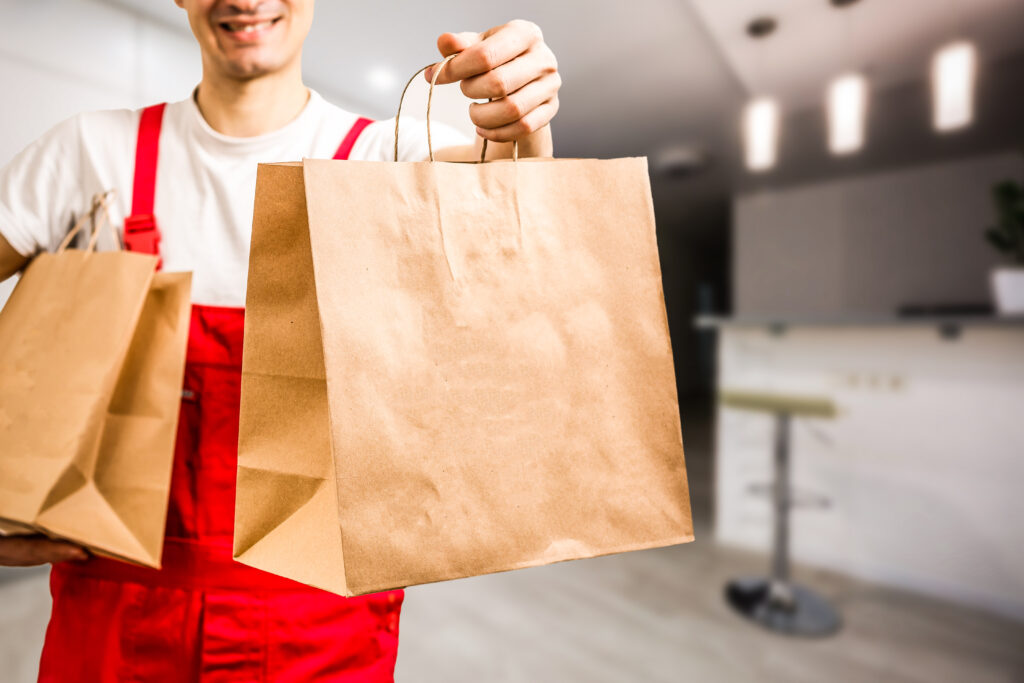
- Products
- Solutions
- Learn
- Partner
- Try Now
The rise of food delivery services has undoubtedly transformed the way we dine. However, with convenience comes responsibility, especially in the face of growing environmental concerns.
As consumers become eco-conscious, the demand for sustainable practices in food delivery, is on the rise. In this blog, we’ll explore strategies for making your food delivery business more sustainable. It will include minimizing food waste to reducing carbon emissions.
What do the stats say?
- According to a report by the Environmental Protection Agency: In the United States alone, food waste makes up a whopping 21% of landfill methane emissions.
- A study by McKinsey & Company: It is found that delivery trips can account for 30% of urban traffic congestion.
These statistics highlight the opportunity for food delivery businesses to make a significant positive impact.
Ways to Sustainable Food Delivery
Sustainable food delivery focuses on reducing environmental impact while delivering meals. It aims at sustainability by considering how the food is sourced, packaged, and transported. Below are the key components.

Sustainable Packaging
Sustainable packaging is often the first step toward eco-friendly food delivery. Opt for biodegradable or compostable packaging materials made from renewable resources. These could include plant-based plastics or recycled paper.
According to the World Economic Forum, the global market for sustainable packaging is projected to reach $400 billion by 2025. This indicates a significant shift toward eco-friendly alternatives.
Source Locally
Supporting local farmers and suppliers reduces carbon emissions associated with long-distance transportation and promotes local economies. According to a study by the Food and Agriculture Organization (FAO), food travels an average of 1,500 miles from farm to plate in the US. By sourcing ingredients locally, food delivery businesses can significantly reduce their carbon footprint.
Reduce Food Waste
Food waste is a significant issue in the food industry. It accounts for approximately 1.3 billion tons of wasted food annually worldwide, as reported by the United Nations Food and Agriculture Organization.
Implementing strategies to minimize food waste, such as accurate portioning, inventory management, and donation programs for surplus food, can not only benefit the environment but also reduce costs for your business.
Optimize Delivery Routes for Sustainability
Optimizing delivery routes not only improves efficiency and customer satisfaction but also reduces fuel consumption and emissions. Utilize route planning software or algorithms to identify the most efficient delivery routes, considering factors like traffic patterns, delivery density, and distance.
Also Read
From Brick and Mortar to Click and Order: How Grocery Delivery has evolved
Embrace Electric Vehicles
Transitioning to electric vehicles (EVs) for food delivery fleets can have a profound impact. With advancements in EV technology and infrastructure, electric vehicles offer a cleaner and more sustainable alternative.
According to the International Energy Agency (IEA), electric vehicles could represent over 30% of the global vehicle fleet by 2040, further emphasizing the importance of electrification in transportation.
Educate Customers on Sustainable Food Delivery
Raise awareness among your customers about the importance of sustainability and the steps your food delivery business is taking to reduce its environmental impact. Encourage customers to opt for eco-friendly packaging options, participate in food waste reduction initiatives, and support local suppliers.
According to a survey conducted by Nielsen, 66% of consumers are willing to pay more for sustainable brands, highlighting the importance of transparency and communication in promoting sustainability efforts.
Conclusion
As the demand for convenience continues to drive the growth of the food delivery industry, it’s essential for businesses to prioritize sustainability in their operations. Adopt eco-friendly practices such as sustainable packaging, local sourcing, food waste reduction and route optimization.
Subscribe to stay ahead with the latest updates and entrepreneurial insights!

Subscribe to our newsletter
Get access to the latest industry & product insights.





















